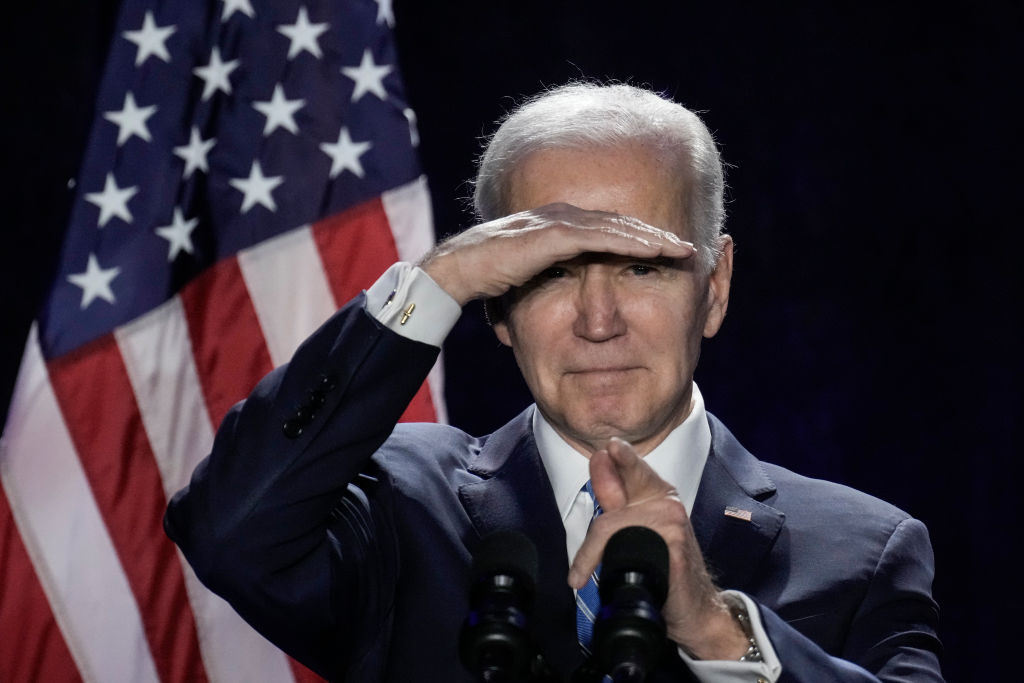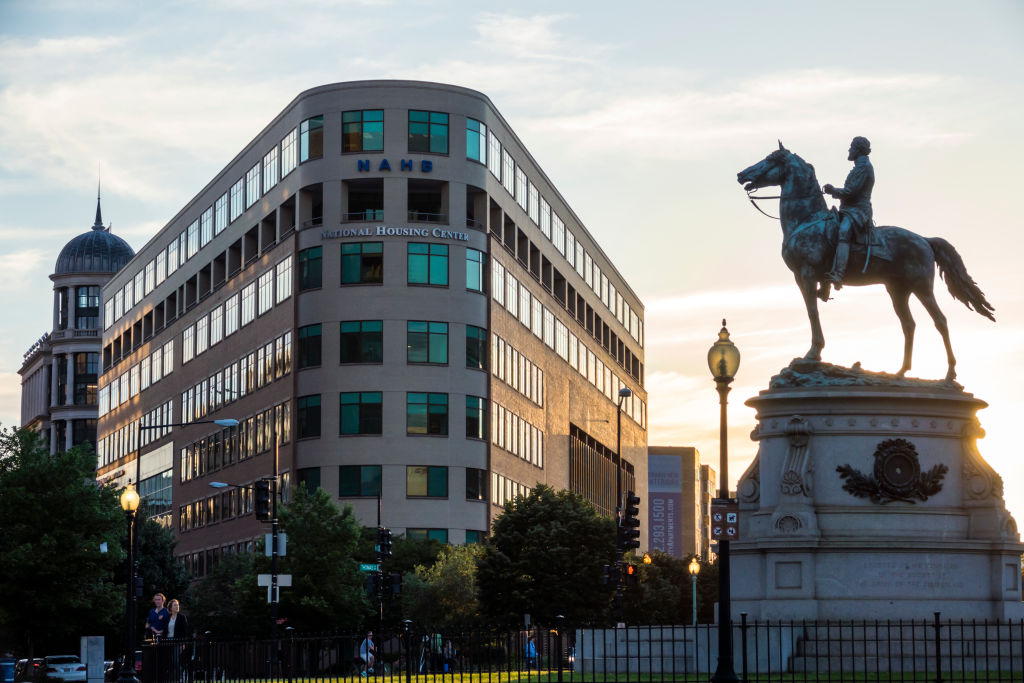The nation’s capital joined more than a dozen other municipalities in the US when the city council passed a measure to allow noncitizen voting in local elections. As a Democrat-run urban sanctuary city, one might be more surprised to find this didn’t happen long ago. But as a federal district, the city is subject to congressional oversight, complicating the process – and perhaps even setting up President Joe Biden to issue one of his his first vetoes.
The Law of the Land, as Clear as Mud
The Washington, DC, City Council passed the Local Residential Rights Amendment Act in January, officially granting the right to vote in local elections to noncitizen residents. Well, almost. Because the district exists under federal oversight, Congress has the right to approve the new law. The GOP-controlled House moved quickly to overturn it, 260-173. It wasn’t looking good for the DC council members, but then the Senate saved them by not taking up the bill inside the 30-day window. It became law on Feb. 23, the city council declared.
But wait, there’s another twist in the plot. According to a spokesperson for Del. Eleanor Holmes Norton, DC’s nonvoting representative in Congress, the Senate parliamentarian disagrees with the council. Since the bill didn’t make its way to the Senate until Jan. 30, the parliamentarian’s opinion is that the review period for the Senate doesn’t end until March 14.
Will Presidential Power Prevail?
If the GOP can force a vote before then, the act – and with it, noncitizen voting in the nation’s capital – might be doomed. Sen. John Fetterman (D-PA) is presently being treated for clinical depression at Walter Reed National Military Medical Center, and Sen. Joe Manchin (D-WV) is expected by some to vote with Republicans on the matter, especially given his declaration of support for joining the GOP to overturn DC’s criminal code reform bill. As the Senate stands right now, Republicans may well have the majority they need to overturn both laws.

(Photo by Drew Angerer/Getty Images)
Should this happen, all eyes turn to none other than the commander-in-chief. President Biden has yet to exercise the power of the veto, and there has as yet been no White House statement regarding the DC measures. A presidential veto, however, would allow the bills to become law, and it’s entirely possible – should the Senate kill either city council package – Biden will feel obligated to act “historically.”
Noncitizen Voting, Then and Now
The US Constitution clearly defines citizenship and residency requirements to be president, vice president, senator, or representative. However, from the nation’s founding until 1926, 40 states at various points let noncitizens vote in local, state, and even federal elections, according to San Francisco State University Professor Ron Hayduk. And not only could they vote, but they could also hold certain offices. Most of those rights were removed bit by bit, beginning with the Alien and Sedition Acts of 1798 and moving through the WWI and WWII eras by many state legislatures over the years. And, of course, Congress prohibited noncitizen voting in federal elections in 1996.
Today, no noncitizen is allowed to vote in statewide or national elections, and three states – Alabama, Colorado, and Florida – specifically passed laws preventing anyone not a US citizen 18 or older from voting even in local elections. Another four – Arizona, Louisiana, North Dakota, and Ohio – have similar language worked into their constitutions. As of February of 2023, however, 14 states lack any clear impediments to local governments granting noncitizens the right to vote – and at least 15 municipalities in three of those states have done exactly that, to some degree.
California
The cities of San Francisco (in 2018) and Oakland (2023) amended their city charters to allow noncitizens who are “parents, legal guardians, or legally recognized caregivers of a child” in the school system the right to vote in school board elections. They aren’t allowed to vote in any other local elections – or, of course, at the state or federal level. They were only given a say in the school districts in which their children are students.
Maryland
As of March 2020, Barnesville, Cheverly, Chevy Chase Section 3, Garret Park, Glen Echo, Hyattsville, Martin’s Additions, Mount Rainier, Riverdale Park, Somerset, and Takoma Park all allow anyone over the age of 18 – 16 in Riverdale Park – to vote, whether they’re citizens of the US or not. Some municipalities include noncitizens specifically, while others don’t implicitly prohibit them. Most, though not all, also include some prerequisite length of residency, ranging from a couple of weeks to six months, and many also prohibit convicted felons from voting.
Vermont
On June 24, 2021, both Montpelier and Winooski amended the city charters to allow legal residents who aren’t citizens to vote in city and school district elections. Governor Phil Scott vetoed both state bills that approved the changes, but the legislature then voted to overturn his veto.
No Love in NY for Noncitizen Voting

(Photo by: Jeffrey Greenberg/Universal Images Group via Getty Images)
The New York City Council voted to extend the right to vote in municipal elections to lawful permanent residents and other noncitizens authorized to work in the US on December 9, 2021. Mayor Eric Adams allowed it to become law without his signature a month later, but a group of Republican voters and officials, along with a single Democratic city council member, filed suit against the new law. In June of 2022, the New York State Supreme Court for Staten Island ruled that it violated the state’s constitution. Judge Ralph Porzio argued that “by not expressly including non-citizens in the New York State Constitution, it was the intent of the framers for non-citizens to be omitted.”
Where Lies the Virtue?
On the one hand, not allowing noncitizens to vote but still expecting them to play by the rules and pay their dues is being presented as taxation and legislation without representation by those in favor of allowing the vote – and that’s not an idea most Americans are fond of when framed so explicitly in those words. That said, this enfranchisement can lead to more issues. What about states that use automatic voter registration? How many noncitizen residents are allowed to vote in state and federal elections purely by accident because of this? Over 500 noncitizens in Illinois were accidentally registered to vote after a computer glitch, despite having selected “no” to the question asking about citizenship, and at least 16 cast ballots in the 2020 federal elections.
Then there’s the question of whether noncitizens should be allowed a voice in how state funds are allocated, and as state Rep. Arthur Peterson (R-VT) pointed out, municipal elections can have statewide funding implications. “If you’re not 18 or you’re not a citizen of the United States, I don’t see how you could be given the right to vote,” he argued. “We have to have some rules, and the [state] constitution is our rule.”
“The Idea that we would give legal voting rights to people who have not shown the loyalty to choose the United States over another country is stunning,” said John Loudon, who led efforts in Florida to fight such laws. “It’s an extreme view to push this.” Is it an extreme view to suggest otherwise legal residents should have a say in their communities? Should noncitizen – but otherwise legal – residents be allowed to vote, even if only in local elections? Or should they be required to achieve citizenship? The people of DC, who will be most affected by this law or lack thereof, may not have an answer until the middle of the month.
Do you have an opinion about this article? We’d love to hear it! If you send your comments to [email protected], we might even publish your edited remarks in our new feature, LN Readers Speak Out. Remember to include the title of the article along with your name, city, and state.
Please respect our republishing guidelines. Republication permission does not equal site endorsement. Click here.

